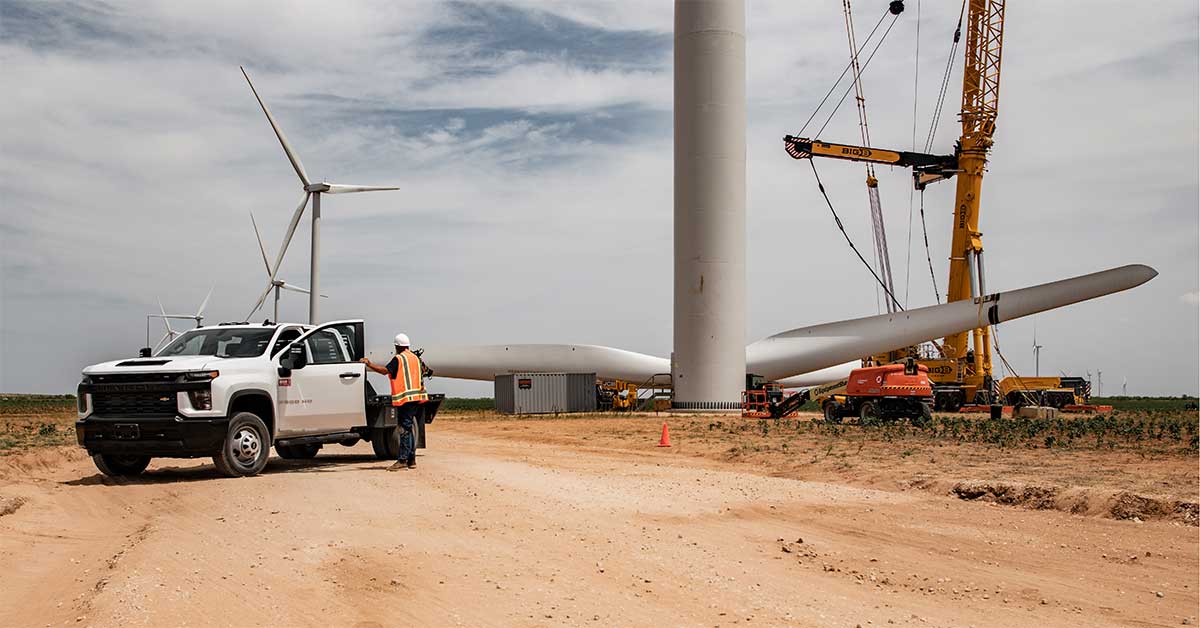NEWS AND NOTEWORTHY CONTENT

PTR and NACE: Renting vs Buying Your Fleet
PTR and NACE: Renting vs Buying Your Fleet
When it comes to capital expenditure considerations, many fleet managers wrestle with determining when to rent equipment versus purchase. Renewables is a dynamic industry, with fluctuating needs for trucks, trailers, and equipment. When expanding your fleet, both renting and purchasing have their benefits. It is important to analyze which option suits the needs of the company, crew, and project at hand.
If you are looking to have an owned, established fleet with equipment available at your fingertips, buying units is your best option. When your goals and projects are stable and predictable, ownership can have a better long-term financial value. Purchasing your work trucks, trailers, and other specialty equipment gives you equity in assets. Additionally, financing is often available when buying units outright. When purchasing, you need a maintenance staff who can manage vehicle upkeep internally or have access to local repair shops to assist in unit upkeep and routine maintenance. For those who need it, the expansion of the fleet can be a rewarding and strategic decision.
If you do not have an equipped maintenance staff or access to local repair shops to help with maintenance but want to try new equipment, renting your fleet may be for you. Renting also helps you create units customized to your job while managing project fluctuation and equipment needs that vary by month. This helps reduce any units depreciating on your lot without generating consistent revenue. Depending on your fleet rental partner, you may also have access to 24/7 field service support, and GPS included to help track idle time, unit location, and more.
Renting a fleet of trucks, trailers, and specialty equipment does not have to be a short-term solution – it is a strategic, long-term financial investment. There are several reasons fleet managers should consider fleet rentals for financial optimization.
- Affordability: Renting units allows a cost-effective alternative to buying, giving you the dependability of fresh, updated units at a fraction of the cost.
- Customization: Every job is different, and every work truck has different uses. With some rental providers, customized upfits can be installed on your units to help increase productivity and eliminate the hassle of manual installations.
- Flexibility: When renting equipment, the duration of the rental is based on your project needs on a month-to-month basis. This allows you to customize your fleet for a specific project and then return the units with increased flexibility for your resource management.
- Quality Assurance: When choosing to rent versus purchase, you gain access to lowmileage or new trucks, trailers, and equipment, allowing for peak performance, quality, and reliability. Esteemed equipment rental houses will do a multi-stage inspection of any unit that is about to be transported.
- Improved Cash Flow: Fleets have a large upfront cost involved in purchases and upkeep that can be eliminated through renting. This allows capital to be preserved for other strategic initiatives by the company. Renting also allows for a fixed monthly rate that can provide peace of mind when it comes to surprise charges from accidents or maintenance that could arise when buying units for your fleet.
- Nationwide Service Network: When partnering with a rental fleet provider, businesses can gain access to a nationwide network that provides many kinds of services. Partnerships across the country allow for timely repairs and support wherever your projects take you.
- Minimal Commitment: When looking into rental options, businesses know that they have a monthly contract and aren’t responsible for the vehicles in the long term. This allows scaling a fleet up or down depending on the business’s current needs.
- Environmental Sustainability: Alongside units with eco-friendly aspects, having rental units in your fleet helps businesses cut out any additional trucks in their fleets that they are not consistently utilizing. Many fleet rental providers also have a variety of electric vehicles and hybrid vehicles available, helping your fleet reach your ESG goals.
- Enhanced Scalability: When working in renewables, the need for specific types of fleet rentals and equipment is always fluctuating. When businesses need to immediately scale their fleets up, rental companies allow access to brand-new trucks without the upfront costs and administration like plating and DOT registration that are required when purchasing vehicles.
- Access to Advanced Technology: With rental fleets, units often have the latest vehicle technology, like telematics. Rental units are also frequently equipped with GPS tracking systems, which can help with fleet management by tracking unit location and reporting idle time.
When planning strategic investments for your fleet, considering renting equipment versus purchasing can be a major benefit to companies. The ability to immediately scale, predict upcoming needs, and customize based on your project demands allows you to have advanced efficiency and financial optimization.
Through all the stages of building wind farms or installing solar panels, crews have many different equipment needs. Understanding the long-term project needs and various cycles of equipment can help determine the best solution for your business.
Read the full North American Clean Energy (NACE) article on page 52-53.
